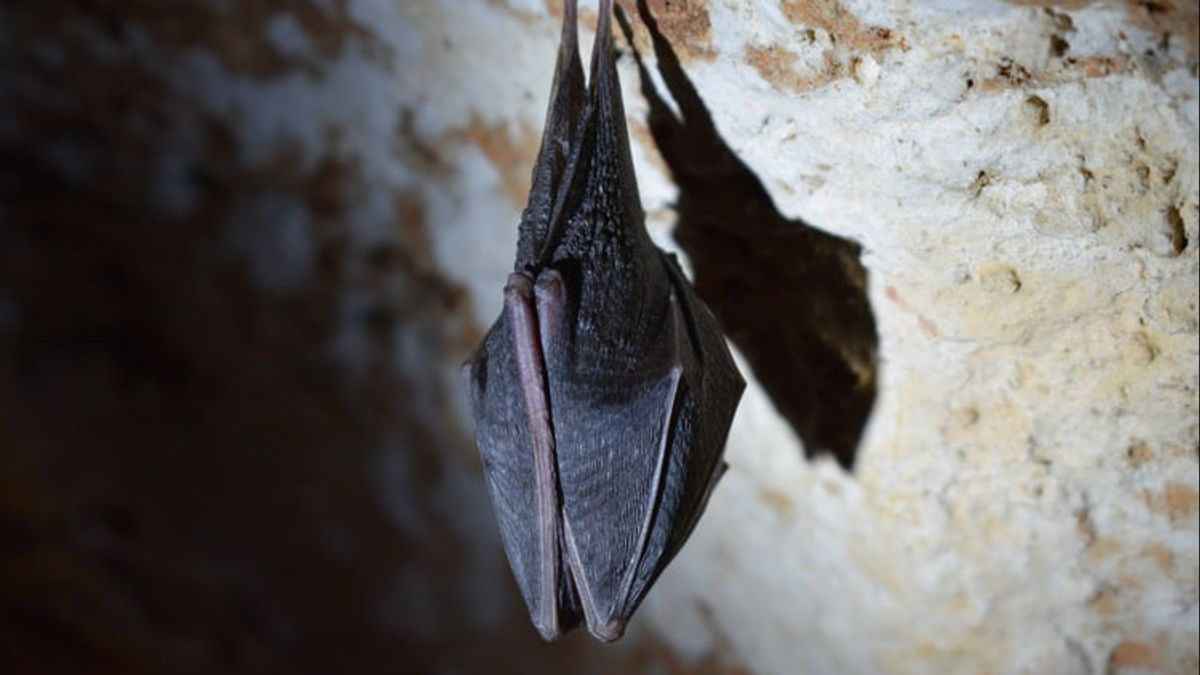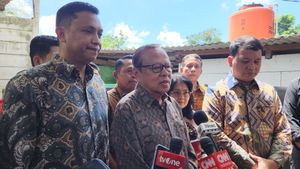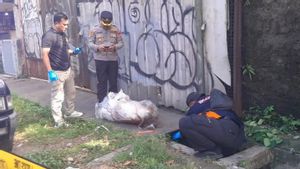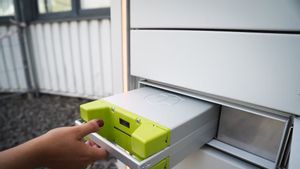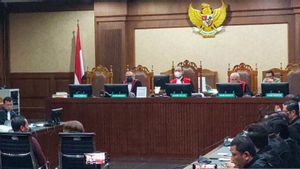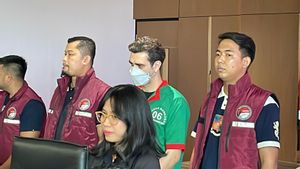JAKARTA - As many as 4 new species of African leaf nosed bats have been discovered. This species is said to have a relationship with the horseshoe bat which is known to spread the new corona virus that causes COVID-19 in China. The new bat species were announced in a study published on Wednesday April 22 in a special issue of the journal ZooKeys, which focuses on the pandemic.
Reporting from CNN, Thursday, April 23, identifying each bat species and understanding more about these bats is very important to provide a basis for information related to the spread of diseases such as COVID-19.
Learning more about bats, both the benefits they offer and how they carry and transmit disease to humans, is key to protecting bats and humans, say the researchers.
Although much attention is being focused on bats as disease carriers, it turns out that these animals are useful for pollinating plants, spreading seeds, and eating insects such as mosquitoes.
But, bats remain largely mysterious to us. Researchers estimate that humans have been able to identify only 25 percent of all bat species in the past 15 years. They are difficult to find and study. Therefore, there is still a lack of information about where the bats live, how they evolved, and their true role in their world.
"Bats are small, nocturnal, and use sound and high-frequency sense of smell to identify other bat species," said Bruce Patterson, lead study author and curator of Macarthur mammals at Chicago's Field Museum.
New bat species have been discovered largely based on specimens collected in Africa over the last few decades. Leaf-nosed bats live in Asia, Africa, Australia and New Zealand, but the species in Africa have not been studied much because the areas where they live are difficult to access.
They got their name from the unique skin folds on their noses that work like radar to help catch insects and direct signals to other bats.
The researchers used DNA to study specimens of leaf-nosed bats and realized that although some of them looked very similar to known species, they were genetically different.
"The thing that struck me most about this study was that we failed to find much genetic support for a long-known species, and found that sharp differences existed in what was considered to be a single species," Patterson said.
The new bat species has yet to be named. The researchers wanted to follow up on their work by looking for patterns in their anatomy and the parasites they carry.
"No leaf-nosed bats carry a problematic disease at the moment, but we didn't know that it would always be a problem. And we don't even know how many species there are," said Terry Demos, Patterson's co-author and researcher.
"Leaf-nosed bats carry the coronavirus but are not strains affecting humans today, but this is definitely not the last time the virus has been transmitted from wild mammals to humans. If we had better knowledge of these bats, we would be better prepared if that happened," he added.
Exterminating bats will not reduce the spread of disease, but a better understanding of bats can actually suppress the diseases carried by bats.
"These bats have a place in nature and perform important ecological functions, and we we cannot allow the terror of COVID-19 to cause us to separate natural ecological systems," said Patterson.
Patterson hopes this exciting moment will lead to further research on bats, as well as a clearer picture of how COVID-19 passes from bats to humans.
"In addition to their many advantages for mankind, we know that bats carry a large number of viruses. A species of bat can only carry the virus if the bat is exposed to the virus, and only has a limited range. So, understand who is out there and where they live. is a map for the ecological connections that currently prevent us from figuring out which animal is carrying SARS-COV-2 in the wild, "concluded Patterson.
The English, Chinese, Japanese, Arabic, and French versions are automatically generated by the AI. So there may still be inaccuracies in translating, please always see Indonesian as our main language. (system supported by DigitalSiber.id)
